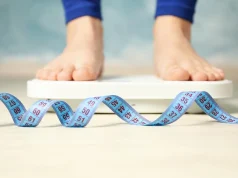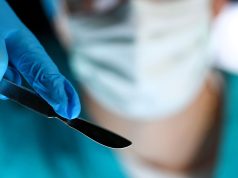Improved outcomes compared with nonanimal stabilized hyaluronic acid-based fillers
THURSDAY, Jan. 15, 2015 (HealthDay News) — For patients with nasolabial folds (NLFs), treatment with a novel biostimulatory polycaprolactone (PCL)-based dermal filler is associated with improved long-lasting efficacy compared with nonanimal stabilized hyaluronic acid (NASHA)-based fillers. This finding was published online Jan. 6 in the Journal of Cosmetic Dermatology.
Hassan Galadari, M.D., from the United Arab Emirates University in Al Ain, and colleagues conducted a randomized split-face study to compare a novel PCL-based dermal filler with a NASHA-based dermal filler in 40 patients. The authors compared the safety, efficacy, and duration of cosmetic correction for the treatment of NLFs.
The researchers found that compared with NAHSA-based filler, NLFs treated with the PCL-based dermal filler showed statistically significant improvements on the Wrinkle Severity Rating Scale and greater improvements on the Global Aesthetic Improvement Scale at six, nine, and 12 months post-treatment. The products were found to be equivalent in terms of safety and tolerability.
“Our results suggest that PCL-based dermal fillers offer longer-lasting performance over NASHA-based dermal fillers in NLFs treatment,” the authors write.
Copyright © 2015 HealthDay. All rights reserved.








